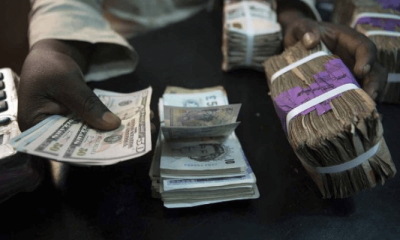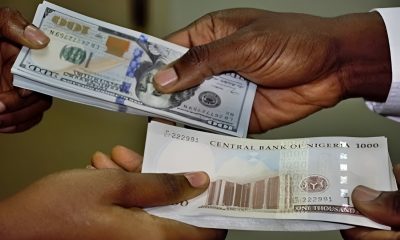The Central Bank of Nigeria (CBN) on Thursday restored the 43 items prohibited from access to foreign exchange (FX).
This was disclosed in a statement signed by Isa AbdulMumin, director of corporate communications.
In June 2015, the Central Bank announced that some 41 items were “Not Valid for Foreign Exchange”, on the grounds that they could easily be produced in Nigeria rather than being imported into the country.
Some of the affected items include rice, cement, margarine, palm kernel, palm oil products, vegetable oils, meat and processed meat products, vegetables and processed vegetable products, poultry, tomatoes/tomato paste, soap and cosmetics, and clothes.
However, in a statement made available to National Daily on Thursday, the apex bank said Importers of all the 43 items previously restricted by the 2015 Circular referenced TED/FEM/FPC/GEN/01/010 and its addendums are now allowed to purchase foreign exchange in the Nigerian Foreign Exchange Market.
READ ALSO: Just in: CBN restates commitment to boost liquidity in forex market
“The CBN is committed to accelerating efforts to clear the FX backlog with existing participants and will continue dialogue with stakeholders to address the issue. The CBN has set as one of its goals the attainment of a single FX market. Consultation is ongoing with market participants to achieve this goal.
It stated that as part of its responsibility to ensure price stability, the CBN will boost liquidity in the Nigerian Foreign Exchange Market by interventions from time to time.
Meanwhile, Nigeria’s currency, the Naira, slumped to N1045/$1 at the parallel foreign exchange market on Thursday as demand continues to regularly exceed supply.
The British Pound Sterling was bought at N1260 and sold at N1270 while the Euro goes for N1090.
Since the Central Bank of Nigeria (CBN) devalued the Naira in June with the aim of improving the country’s financials and inflationary impact, the local currency has lost more than 40 per cent against the US dollar.

 Inspirational1 week ago
Inspirational1 week ago
 Featured7 days ago
Featured7 days ago
 Crime7 days ago
Crime7 days ago
 Featured7 days ago
Featured7 days ago
 Editorial3 days ago
Editorial3 days ago
 Business5 days ago
Business5 days ago
 Business2 days ago
Business2 days ago
 Agribusiness1 day ago
Agribusiness1 day ago













